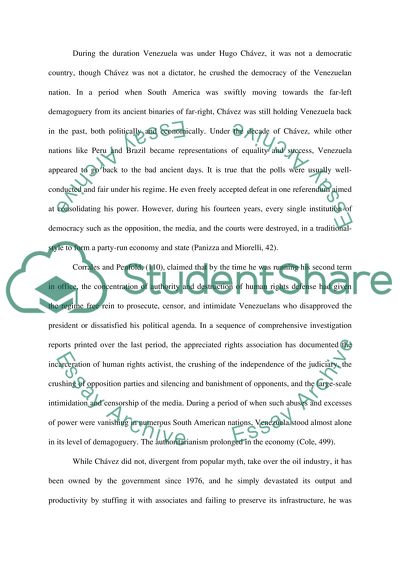Cite this document
(“Venezuela under Hugo Chavez Essay Example | Topics and Well Written Essays - 1000 words - 1”, n.d.)
Retrieved from https://studentshare.org/politics/1689162-do-you-consider-venezuela-under-hugo-chavez-1998-2012-a-democratic-country
Retrieved from https://studentshare.org/politics/1689162-do-you-consider-venezuela-under-hugo-chavez-1998-2012-a-democratic-country
(Venezuela under Hugo Chavez Essay Example | Topics and Well Written Essays - 1000 Words - 1)
https://studentshare.org/politics/1689162-do-you-consider-venezuela-under-hugo-chavez-1998-2012-a-democratic-country.
https://studentshare.org/politics/1689162-do-you-consider-venezuela-under-hugo-chavez-1998-2012-a-democratic-country.
“Venezuela under Hugo Chavez Essay Example | Topics and Well Written Essays - 1000 Words - 1”, n.d. https://studentshare.org/politics/1689162-do-you-consider-venezuela-under-hugo-chavez-1998-2012-a-democratic-country.


